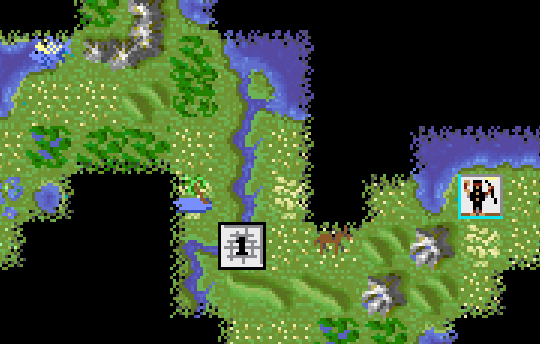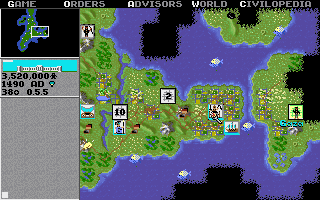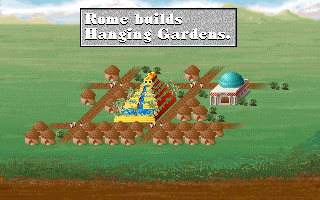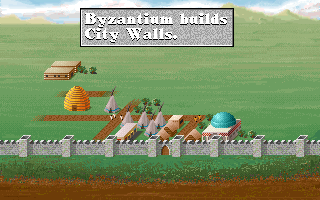

Sid Meier’s Civilization (1991)
The opening moves of a game of Civilization are a master class in making procedural generation matter to the player. While I love purely visual procedural effects too, it is much easier to make players care about procedural generation that has a direct effect on their interaction with the game. And with Civilization, every tile on the map has the potential to matter.
Later Civilization games would refine this formula and make the interface more accessible, but the basics were there right from the start. The beating heart of Civilization is the relationship between the cities and the tiles. Each tile has a measurable effect on the development of the nearby city, if one of the city’s workers use it…but the city only has a limited number of citizens,, particularly in the early game. Growing the best city means learning how to get the most out of each tile in the city’s radius. And, unless you’re playing on the Earth map, each and every one of those tiles was procedurally generated.
Since the basic unit of the generator and the gameplay is the tile, the expressivity of the underlying system is quickly absorbed by the player. It helps that geography is already familiar for many people, but no doubt these games are where many of us first learned about the strategic importances of isthmuses and how coastlines and continents can shape geopolitical choices. And it all goes back to way the tile is the shared language between the player and the game. (A couple of decades later, Minecraft would demonstrate the use of a universal building block to unify its systems in a similar way.)

This is, I suspect, one reason why the late game in every Civilization game has generally been weaker than the start: once you have the whole map opened up in the modern era, individual cities and tiles don’t matter as much, and the game never quite develops another way for the game and the player to communicate.
The various Civilization games attempt to address this in various ways. The first Civilization did so by introducing the alternate victory condition of a space race to Alpha Centauri, which was not only pretty influential on other games, but also mitigates the late-game mop-up that typically plagues 4X games.
As a bonus, the city view screens also have some randomized variation:


